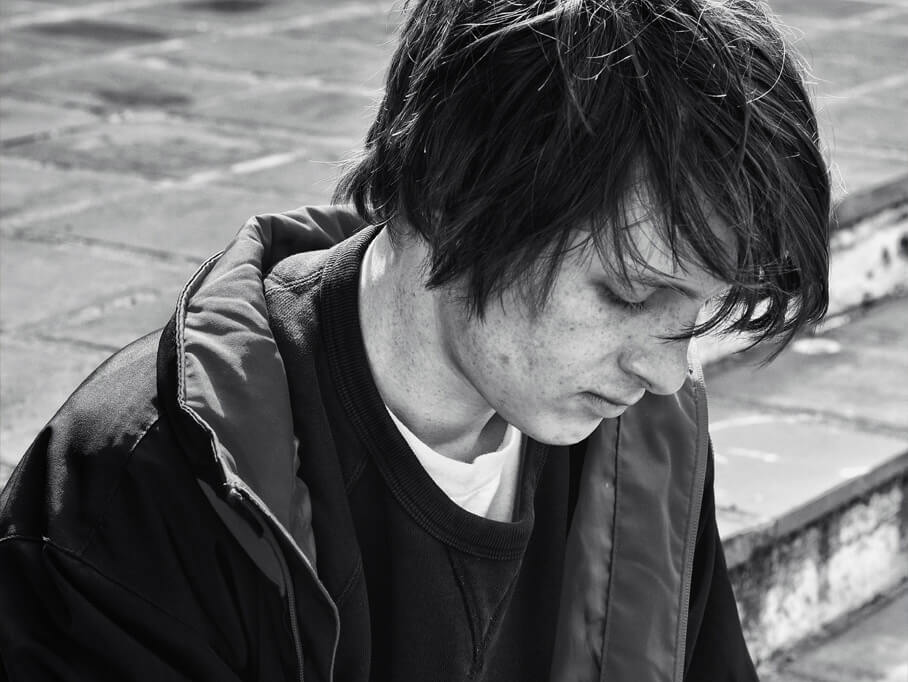
Fatherless Boys
WRITTEN BY:
Rob Maroney
October 19, 2022
Every father should remember one day his son will follow his example, not his advice.
(Charles F. Kettering)
Some people would argue that Bo Jackson was the greatest athlete ever to live. Playing both professional football and baseball, there isn’t much more Bo Jackson could have done to excel in athletics. Yet at the top of his game, he still felt the wound of an emotionally absent father. Bo Jackson revealed this pain in an interview with Sports Illustrated:
“My father has never seen me play a football or baseball game. Can you imagine? Here I am, Bo Jackson, one of the so-called premier athletes in the country, and I’m sitting in the locker room and envying every one of my teammates whose dad would come in and talk, have a drink with them after the game. I never experienced that.”
– Bo Jackson (In Sports Illustrated)
An abundance of research and statistics have been published about the impact of a “fatherless” home. Studies report how young men who grow up with physically, or emotionally, absent fathers often have trouble with personal and relational areas of their lives; tend to have low self-esteem; struggle to establish and maintain intimate relationships; and are at greater risk of engaging in antisocial or violent behavior, as well as compromised sexual integrity.
While there is validity in many of these reports, statistics are tricky. Statistics alone can leave us feeling hopeless or blaming others. Worse, numbers alone can feed unfounded prejudice, fear and feelings of powerlessness. They rarely take into account the non-biological father figures who step in to fill that gap in a young child’s life and those who change lives every day, as well as the many success stories of children raised by single parents who were present, attentive and available to their children.
Documentary film producer, Daphne McWilliams, in her film “In A Perfect World” makes the case that a boy can be raised in a household without a father and there doesn’t have to be a negative outcome. She says, “It’s my personal feeling that it’s always in the best interest of the child (boy or girl) when they can have a relationship with their father. I think children should “know” both of their parents.”
I didn’t grow up “fatherless” in the sense that my dad was physically present, but he was emotionally absent. Little boys and girls both long for the affirmation and acceptance of their father. They want to know their father is pleased with them, not for what they do or don’t do, but simply because of who they are. This kind of father connection was missing for me. In his book The Father Factor, Stephan Poulter writes, “this fathering style made up approximately 50 percent of nuclear families between 1945 and 1980. It’s the kind of dad we saw on Leave It to Beaver. It’s the dad who is a ‘good guy,’ and some would consider him a ‘good dad.’ Although he might frequently be around, he’s not emotionally there. He’s not present to others around him, and he’s not attune to the feelings or emotional needs of his family.”
The number of fatherless boys is certainly alarming. However, it doesn’t have to become a life sentence. When Roland Warren, the former head of the National Fatherhood Initiative, delivered the eulogy for his late father, he broke down talking about the distant relationship between him and his dad. He said, “I was a little boy with a hole in my soul in the shape of my dad, with unhealed wounds from years of feeling neglected and less than worthy.” Now, as he travels the country to speak, he meets other wounded souls – adults and children – who long (or longed) for the special love and affirmation that only good fathers can give. Now, he cries for them and with them. It is what motivates him to reach as many fathers as he can even when the money is short and the days are long. He says, “After all, the easiest wound to heal is the one that is never received.”
Today, despite his absent father, Bo Jackson has also rewritten his story. He has been married to his wife Linda Jackson for over thirty years, and together they have raised three children. Over the years, as Jackson worked through his disconnection with his father, he decided to take the first step and reach out to him. He says, “we had a long talk, and things are looking up. It’s a start.”
In our highly sexualized culture we have created faulty role models that have hijacked our thinking and delivered a tainted message to both men and women about their value, creating distorted views about connection, relationships, parenting, and intimacy. What we learned about love and belonging was caught rather than taught. If you ask a man about his role models growing up, he will likely have difficulty coming up with any. For most men, they were few and inadequate.
At a recent screening of Daphne McWilliams’ documentary, “In A Perfect World” at Williamsburg Charter High School in Brooklyn, a room full of boisterous teens fell silent as they watched the film that mirrored many of their own experiences. During a discussion group after the screening, the teenagers shared their disappointment and anger toward their fathers. Yet, they were quick to identify men in their lives that stepped in as father figures. One young girl pointed to the school dean seated next to her, a tall imposing man with a firm handshake and determined look, and announced:
“Mister Sanford is my true father. He’s a better father than my father ever was.” When asked why, her answer was straight to the point:
“He’s always there for me and he cares.”




